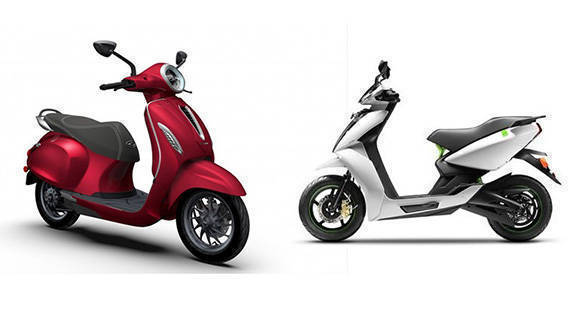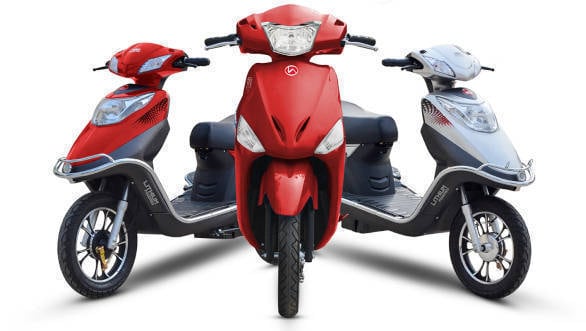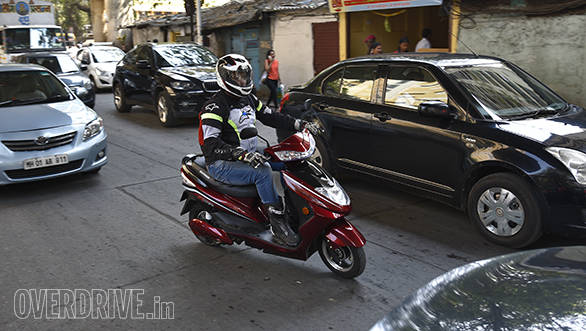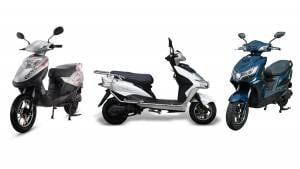Electric vehicles can now be sold in India without batteries, states the Government
The Government of India, in a recent update, has allowed the sales and registration of electric vehicles without batteries. This move is said to bring the prices down of EVs as batteries amount to 30 to 40 per cent of the total price of the vehicle. "The government is striving to create an ecosystem to accelerate the uptake of electric mobility in the country. It is time to come together to work jointly to achieve the broader national agenda to reduce vehicular pollution and oil import bill. It will also provide opportunities to the sunrise industry." states a letter from Ministry of Road Transport and Highways to the principal secretaries and transport commissioners of the department of transport of all states and Union Territories.

With this move, the Government hopes to bring the prices of EVs down and make them available at a competitive point against the IC range of vehicles. The letter mentions, for the promotion of electric two and three-wheelers, there are recommendations brought to the notice of the Ministry to delink the cost of the battery from the vehicle cost. This will make the upfront cost of the electric two-wheeler and three-wheeler to be lower than the ICE 2W and 3W. The battery could be provided separately by the OEM or the energy service provider.
Further, the prototype of the electric vehicle and the battery (regular or swappable battery) is required to be type approved by the test agencies specified under Rule 126 of the Central Motor Vehicles Act, 1989. The letter also mentions that the vehicle can be sold and registered, based on the type approval certifications issued by the test agency, without mentioning the make or the type of battery that will be offered in the EV for the purpose of registration.

"The policy is a welcome move. I am excited about the possibilities that exist in making EVs accessible to every individual in the country. All we need is a combination of such pioneering policies for it to work for us as per plan in the long-run will work in the long term. For this to take off and be able to efficiently pass on the benefit to the consumer, we ought to work towards a strong infrastructure that allows EV owners to charge and swapping batteries wherever they require. I look forward to more such positive interventions." commented, Naveen Munjal, MD, Hero Electric.
"It is a good move to reduce the cost of acquisition of an EV for a customer which is right now at par with ICEs but the major benefit will be to shared mobility and logistic players who are working to make a shift to EV "Amit Raj Singh, Co-founder & Managing Director, GEMOPAI.

Earlier this month, the Delhi state government has announced a new EV policy that will be implemented in this region. The aim is to put 5 lakh electric vehicles on Delhi roads in the next five years. The aim is to increase the number of EVs on Delhi roads to 25 per cent of all vehicles, up from the current 0.2 percent. The incentives from this policy will be effective over and above the central government's FAME II subsidy scheme. An EV Cell has also been set up to ensure ground-level implementation of this new measure.
Commenting on the above, Tarun Mehta, CEO and Co-Founder, Ather Energy, mentioned, "MoRTH's new policy is a great move for both customers and OEMs. It lowers the upfront cost that the consumer has to pay and allows OEMs to build superior products at an affordable price point. Ather has been proactively experimenting with different sales and ownership models and the new policy opens up new opportunities in financing options.
Based on our learning, it will likely take some time for consumers to understand and adopt this model of ownership, but in the long run it will be a big boost to the Indian EV industry. It will also make it easier for new players to join the industry. With BS-6 increasing petrol scooter prices, we expect consumers to shift to electric scooters, which offer great performance, in the months to come."
 Tarun Mehta, Co-Founder and CEO, Ather Energy
Tarun Mehta, Co-Founder and CEO, Ather Energy
"It is a motivation to see the government working towards accelerating adoption of electric mobility. The policy now allows selling electric vehicles without batteries. This widens the scope for manufacturers and buyers both. We are swiftly adopting the much-needed flexibility and comfort in the EV ecosystem. Tax rebates will help drive the demand better. This is also expected to reduce the overall cost of acquisition of the product by saving amount in the vehicle registration procedure, thus
offering affordability. We look forward to more such industry boosting policies," said Jeetender Sharma, MD and Founder, Okinawa.














